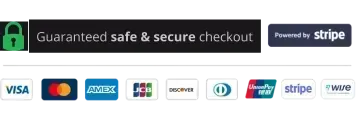Overview
The TQUK Level 3 Certificate in Assessing Vocational Achievement (RQF) is the most extensive assessment qualification and the only assessor award to make you a professionally qualified assessor with the proficiency of evaluating occupational competence in the workplace and vocational skills.
TQUK, the UK’s rising Awarding Organisation, has accredited the TQUK Level 3 Certificate in Assessing Vocational Achievement (RQF) course. TQUK is a well-established Ofqual-regulated awarding organisation which guarantees professionalism and recognition of your qualifications.
This certification is suitable for professionals who want to begin their career as a certified assessor, perhaps as a training provider or as a freelancer. You would be able to evaluate students in classrooms and at work environments as a trained assessor. This accredited certification is a qualification based on knowledge, specifically for individuals who want to gain adequate expertise in assessing occupational competence in the workplace and vocational skills, as well as grasp the assessment practises and principles effortlessly.
After the course is completed, you’ll be able to professionally assess and understand individuals and start your career as a qualified assessor by working in classrooms, professional training or as a freelancer .
Benefits you will gain:
- Top-notch e-learning materials.
- Unlimited access from any corner of the world.
- Accredited Certification.
- An innovative, easy-to-use learning platform.
- 24/7 student support.
Qualification
Description
In the TQUK Level 3 Certificate in Assessing Vocational Achievement (RQF), there are 3 compulsory modules. These are:
- Understanding the Principles and Practices of Assessment
- Assessing Occupational Competence in the Work Environment
- Assessing Vocational Skills, Knowledge and Understanding.
The award aims to improve the potential of the students to:
- Understand the primary roles and duties of a qualified assessor.
- Monitor and evaluate candidates professionally at work or training settings.
- Collect and assess the evidence of expertise.
- Conduct evaluation tasks effectively, make assessments, and offer detailed feedback.
- Examine occupational competencies across a wide range of qualifications.
- Learn how to evaluate vocational and training skills using a variety of assessment tools and methods.
- Get familiar with the main concepts and mechanisms underlying the assessment strategies.
The award is designed to develop the students’ ability to:
- Understand the key role and responsibilities of an assessor
- Successfully observe and assess candidates in the workplace or training environment
- Plan, allocate and inspect work in their individual area of responsibility
- Collect and assess evidence of competence
- Successfully carry out all assessment activities, make decisions and provide thorough feedback
- Assess vocational competencies in a variety of qualifications
- Gain the skills and knowledge to assess vocational and training abilities using a range of assessment methods
- Understand the key principles and processes of assessment strategies
- Become successful in their chosen field as well as in their chosen career path
- Monitor and maintain records, analyse deficiencies, and lead corrective action efforts
Qualification Purpose
These qualifications equip students with the opportunity of improving their skills, knowledge and comprehension to take on the role of a professional assessor.
This certification is designed for those who evaluate occupational competence in the workplace as well as vocational abilities, experience, and comprehension in a workshop, classroom, or any other training environment. All of the assessment measures mentioned in the units must be supported by evidence.
Who is this course for?
This TQUK Level 3 Certificate in Assessing Vocational Achievement (RQF) is the perfect fit for professionals who would like to start a career as an assessor and assess occupational competence in the workplace, as well as vocational abilities, knowledge, and excellence in the classroom, workshop, or other learning setting.
This qualification is also appropriate for those interested in working as an assessor in the Education and Training industry. After successfully completing the course, your experience and credentials will help to improve your expertise for specific assessing roles.
Entry Requirements
- There are no particular entrance criteria, but learners must have a minimum level two of literacy or numeracy or an equivalent.
- The qualifications are appropriate for learners aged 18 and up.
Progression
Total Qualification Time
This is an estimation of the overall amount of time a student is normally supposed to take to reach and show the required level of achievement to obtain the certification and. all learning outcomes.
Total Qualification Time (TQT) is composed of GLH and an estimation of how many hours a learner is expected to spend on training, study, or some other learning form, including evaluation, that is led by but not supervised by an instructor, supervisor, or tutor. TQT determines the credit worth of a qualification, if one is granted, since one credit equals 10 hours of study.
Total Qualification Time for this qualification is 150 hours.
Guided Learning Hours
These hours include all real-time contact time with a learner, as well as any guidance or oversight provided by an instructor, educator, or other suitable education or training provider.
GLH for this qualification is 84 hours.
Method of Assessment:
- Unit One: In Unit 1, a number of writing assignments has to be submitted.
- Unit Two: In Unit 2, an assessment needs to be done in the workplace to evaluate learner’s work, professional discussions with audio-video evidence.
- Unit Three: In Unit 3, after evaluating learners in a training setting, you have to be assessed by giving your work items with audio-video evidence.
Video Assessment: Proof of supported work product must be prepared for 15-30 minutes, including observation, questioning/professional discussions and inspection.
In the “Guidance for Achieving the Unit” section of your learning portal, you will find detailed assessment guidelines.
Assessment exercises consist of completing a few short assignments. You are expected to demonstrate proof of general reading and to include references in your work.
All assignments should be submitted via the online portal.
Please note that, when submitting the assignments, you must pay an extra fee of £349 for the evaluation and formal certification.
Career path
This TQUK Level 3 Certificate in Assessing Vocational Achievement (RQF) will prepare you to evaluate occupational competency and vocational skills in a variety of qualifications, for example:
- Apprenticeships
- Awards
- Certificates
- Diplomas
- Functional Skills
- Technical Certificates
Course Curriculum
- 15 sections
- 63 lectures
- 17 hours, 5 minutes total length
-
Getting Started – TQUK Level 3 Certificate in Assessing Vocational Achievement (RQF)
00:05:00
-
Application Form
-
Unit One: Understanding The Principles And Practices Of Assessment – Self-Assessment Grid
-
Unit Two: Assess Occupational Competence In The Work Environment – Self-Assessment Grid
-
Unit Three: Assess Vocational Skills, Knowledge And Understanding – Self-Assessment Grid
-
Unit One: Understanding The Principles And Practices Of Assessment – Guidance For Achieving The Unit
00:35:00 -
Unit Two: Assess Occupational Competence In The Work Environment – Guidance For Achieving The Unit
00:20:00 -
Unit Three: Assess Vocational Skills, Knowledge And Understanding – Guidance For Achieving The Unit
00:20:00
-
Unit One: Understanding The Principles And Practices Of Assessment – Assessment Plan
-
Unit Two: Assess Occupational Competence In The Work Environment – Assessment Plan
-
Unit Three: Assess Vocational Skills, Knowledge And Understanding – Assessment Plan
-
An introduction to the three Assessor Units
00:15:00 -
Key Concepts and Principles of Assessment
00:20:00 -
Planning Assessment
00:20:00 -
Assessment Types
00:15:00 -
Assessment Methods
01:00:00 -
Involving learners and Others in the Assessment Process
00:20:00 -
Making Assessment Decisions and Providing Feedback
00:20:00 -
Assessment Records
00:10:00 -
Standardising Assessment Practice
00:10:00 -
Evaluating Assessment Practice, and Continuing Professional Development
00:15:00
-
Observation and Question Checklist for Assessment Unit Two: Assess Occupational Competence in The Work Environment
-
Observation and Question Checklist for Assessment Unit Three: Assess Vocational Skills, Knowledge and Understanding
-
Assessor Roles and Responsibilities
00:05:00 -
Table of Assessment Types
00:10:00 -
Table of Assessment Methods & Activities: Strengths and Limitations
00:40:00 -
Table of Peer and Self-assessment: Advantages and Limitations
00:05:00 -
Table of Objectives
00:05:00 -
Table of Example Assessment Requirements
00:05:00 -
Table of Example Assessment Records
00:05:00 -
Equality and Diversity, and The Equality Act 2010
00:10:00 -
Equality and Diversity – Glossary of Terms
00:15:00 -
Table of Resources Which Could be Used for Teaching, Learning and Assessment
00:05:00 -
List of Technologies Which Could be Used for Teaching, Learning and Assessment
00:05:00 -
Table of Potential Learner Needs and Points of Referral
00:05:00 -
Using Questions
00:10:00 -
Minimising Risks
00:10:00 -
Key Feedback Words for Use During Feedback
00:05:00
-
Templates – A Full Set of Assessment Records
-
Completed Example of A Full Set Of Assessment Records
00:15:00 -
Template – Standardisation Record for Assessed Work
-
Completed Example of A Standardisation Record For Assessed Work
00:05:00 -
Template – Personal Development Plan
-
Completed Example of A Personal Development Plan
00:05:00 -
Template – Continuing Professional Development Record
-
Completed Example of A Continuing Professional Development Record
00:05:00 -
Template – Reflective Learning Journal
-
Completed Example of A Reflective Learning Journal
00:05:00
-
Checklist for Advancing Equality and Diversity
00:10:00
-
An introduction To The Three Assessor Units
00:45:00 -
Key Concepts and Principles of Assessment
01:00:00 -
Planning Assessment
01:00:00 -
Assessment Types
01:00:00 -
Assessment Methods
01:00:00 -
Involving Learners and Others In The Assessment Process
01:00:00 -
Making Assessment Decisions and Providing Feedback
01:00:00 -
Assessment Records
01:00:00 -
Standardising Assessment Practice
00:40:00 -
Evaluating Assessment Practice, and Continuing Professional Development
00:50:00
-
Assessment – TQUK Level 3 Certificate in Assessing Vocational Achievement (RQF)
-
Submit Your Assignments
-
Submit Your Assignments – TQUK Level 3 Certificate in Assessing Vocational Achievement (RQF)
-
Resubmit Your Assignments – TQUK Level 3 Certificate in Assessing Vocational Achievement (RQF)











